You may be asking if your GST Registration Cancellation is permanent. It’s not always an easy answer. Businesses can occasionally undo the cancellation. Let’s look at circumstances in which terminating your GST registration could not be definitive and what you can do to get it back up and running if needed.
1. Reactivating GST After Voluntary Cancellation
2. Reversing Cancellation Due to Mistake
3. GST Registration Cancellation by the Tax Authorities
4. Canceling GST Registration Due to Business Closure
5. Reactivating GST After Turnover Crosses the Threshold
6. Changes in Business Structure
7. GST Re-registration for Mergers or Acquisitions
Reactivating GST After Voluntary Cancellation:
You might be able to reactivate your GST registration if you choose to voluntarily cancel it and then decide to start your business again. This process is not automatic, though. You must reapply to the GST department and give good cause for doing so. It typically works if your business operations have resumed or your revenue has surpassed the GST level.
Reversing Cancellation Due to Mistake:
A company may inadvertently terminate its GST registration. You can ask the GST department to revoke the cancellation if it was made inadvertently. You must demonstrate that the cancellation was an error and that your company still satisfies the conditions for GST registration. Your request may be considered by the tax authorities, who will then reactivate your GST number.
GST Registration Cancellation by the Tax Authorities:
The tax authorities may occasionally cancel your GST registration due to non-compliance or failure to file returns. Your GST registration will not be completely lost if this occurs. Once you have resolved the concerns brought up by the authorities, you can ask for the cancellation to be revoked. For instance, you must pay off all outstanding balances before requesting reactivation if you neglect to file taxes.
Canceling GST Registration Due to Business Closure:
It may appear that your GST Registration has been permanently cancelled if you have done so because your business has closed. You can, however, file for a new GST registration if you choose to restart your company or launch a new project. Remember that your prior registration information won’t be carried over, and you might have to start the GST registration process afresh.
Reactivating GST After Turnover Crosses the Threshold:
You can cancel your registration if your company’s turnover exceeds the GST threshold. However, you might have to re-register if your turnover rate rises again. It’s not automatic in this instance, and you must reapply for GST registration. It is typical for small firms with sporadic fluctuations in sales.
Changes in Business Structure:
Re-registration can be required if you cancel your GST registration because of changes to your business structure (such as moving from a sole proprietorship to a partnership). The cancellation from your previous structure will not instantly transfer to your new business arrangement, which would require a new GST registration. It implies that you will have to process a new GST number application.
GST Re-registration for Mergers or Acquisitions:
Your GST registration may be cancelled as part of the process if your company has merged with or been purchased by another company. On the other hand, you can use the new integrated structure to apply for a new GST registration. It is frequently the case with business consolidations, where the combined companies require a new registration to function under a single tax number or name.
Final Note
The revocation of a GST registration is not necessarily final. Businesses can frequently reapply or reactivate their GST registration after resolving certain issues or making the required adjustments. It is usually better to speak with a tax professional or GST adviser to determine the precise actions you must take. If you need professional help completing the process of GST Registration Cancellation Online in India, reach out to our efficient team of professionals at Eazy Startups today.

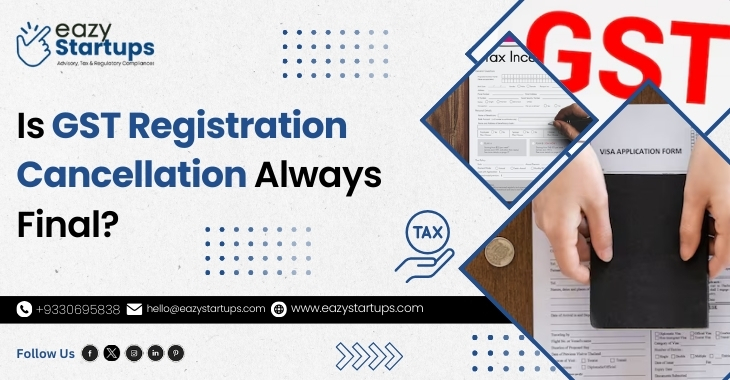
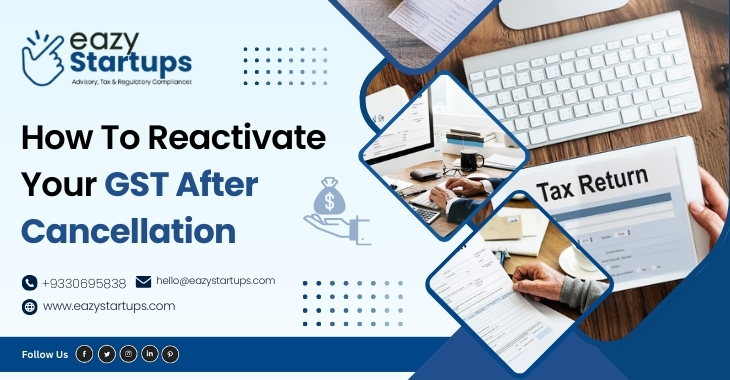
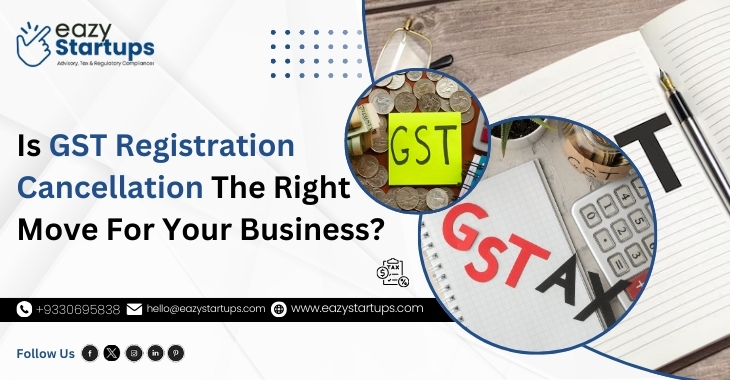


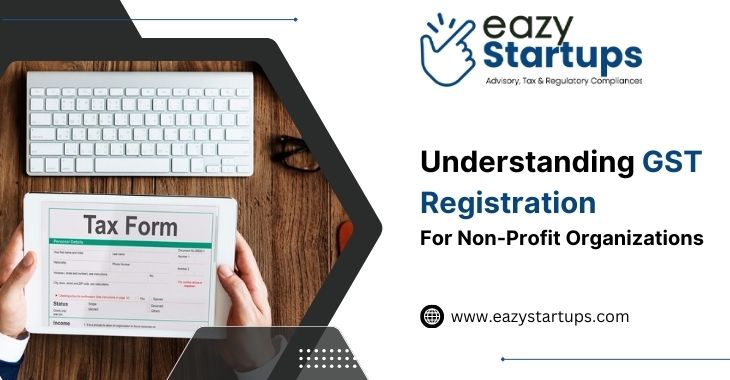

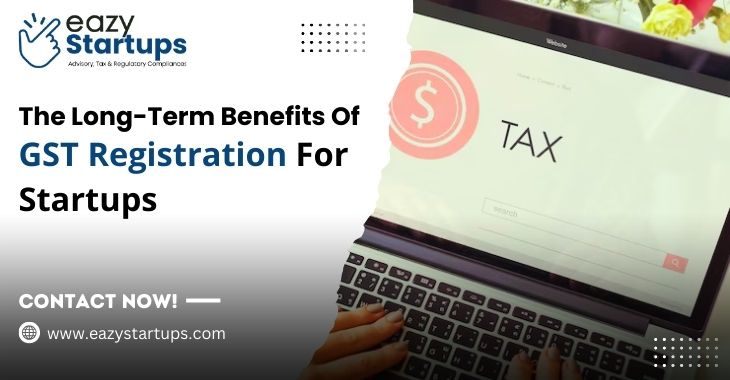
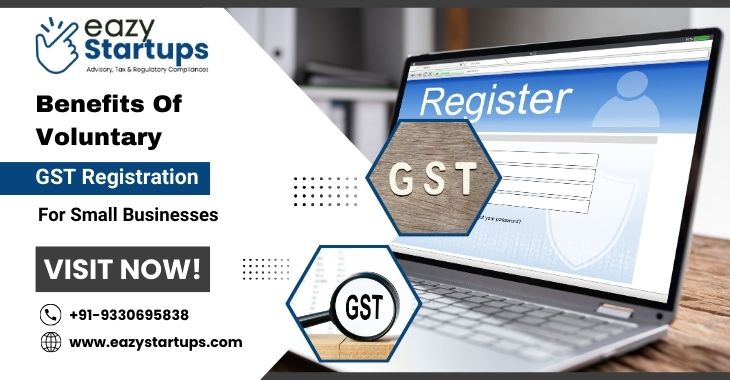

Recent Comments